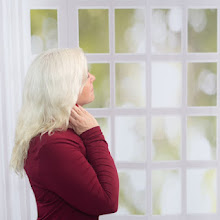Suicide; A Type of Traumatic Grief
- Class 1–Mental health and substance problems (13.5 percent).
- Class 2–Mental health problems (17.6 percent).
- Class 3–Crisis, alcohol-related, intimate partner problems (18 percent).
- Class 4–Physical health problems (31.7 percent).
- Class 5–Polysubstance problems (19.2 percent).
So, besides the reasons listed above, why do people choose to end their life? People get overwhelmed with life. They either experience a trauma or endure a medical or mental health condition. Treatment is needed but the complexities, and often the expense, of getting the needed care can be challenging. As a nurse I have seem this happen more times than I care to can count. Trauma and stress affect the nervous system; the sympathetic nervous to be exact. This leads to the "fight-or-flight" response you hear so much about nowadays.
Faster heart rate
Nausea
“Butterflies” in the stomach
Sweaty palms
Trembling/weak legs and hands
Tension in thighs, neck, and shoulders
Focus on negative memories
The nervous system and body can only take so much. Feeling like this for years on end can be absolutely overwhelming. People who commit suicide don't really want to end their life; they just want the pain and distress to stop, and they can't see any way out.
Those left behind realize this and that is why it makes it so much more difficult to heal. We don't want the person to leave us, and they don't want to leave. This makes it feel like an unavoidable tragedy. So, besides all the typical symptoms of dealing with a trauma, there are the additional emotions that come along with the feeling that you (or someone else) should have and could have stopped it.
In this case, it is critical you see a counselor or join a support group who is familiar with suicide.
You Cannot Walk in Someone Else's Shoes
I want to make something clear. You could not have stopped it. Let me repeat that. You could not have stopped it. You may have been able to delay it a day, a week, maybe even a month. But this is the other person's choice and free will to take his/her own life. There are many people who have dealt with similar circumstances and choose to go on. That does not mean they are better than those who chose to leave. We are very complicated beings and no one person is alike. You cannot not ever walk in another person's shoes, as the saying goes. But, in the end, it is a choice. A very difficult choice, but a choice, nonetheless.Help and Hope
So, can anything help? Well, the decision is a complicated one. But there is basically only one purpose of a suicide: to end distress we believe cannot be managed or treated (mental, physical, emotional, or typically a combination). Anything that helps significantly alleviate distress can improve someone's life and make it less likely for suicide to be chosen.
There are several things that help with distress- mildly for the short term. The person in distress needs to know that something that can help significantly for the long-term.
The good news is that there are things that can help significantly for the long-term. The problem is getting access to these medications, treatment, and activities. Let me give you an example.
People live in pain every single day despite the fact that there are many medications and other ways totreat pain. Well, one way to treat pain is to calm the nervous system which will help to alleviate pain.
A beautiful temperature-controlled room with flowers, incense, and calming music or nature sounds can work wonders. Just think of having a room like this at the mountains, at the beach, or even just at a pretty piece of property anywhere for a weekend. Healthy meals are provided for you, and you do not need to "do" anything. You can read a book or visit with others in a common room. No electronics or televisions in sight. Can you just imagine the stress releasing from your body?
So, as a society, why don't we do things like this? Then, when you return home, you are required to take time like this for yourself two hours, twice a week. Add this to your usual pain medication and you are off to a good start to improve the quality of life.
You can probably think of the many reasons most people do not this. And if you are thinking that doing something like this could not possibly help with pain, I can assure you it does. I live in chronic, daily pain. You might be surprised what helps, especially when your doctors will not or cannot prescribe any more medication for you.
Please join me next time as I talk candidly about my own struggles with depression, pain, and suicidal thoughts.
Once again, if you lost someone to suicide, it is critical you see a counselor or join a support group who is familiar with suicide. If you ever feel suicidal, please call someone, anyone- a friend, family member, or the suicide hotline at 988.

.gif)
.gif)

.gif)
.gif)


Comments
Post a Comment